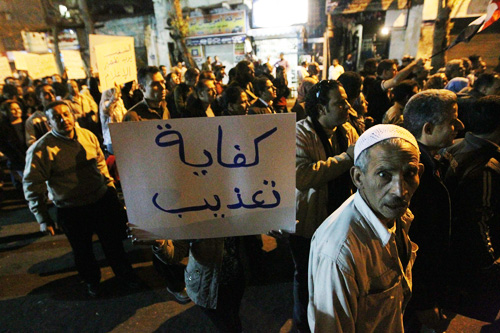UPDATE: Military aircraft sent to look for 5 missing citizens in Aswan
Defence minister orders search
Military aircraft sent to look for 5 missing citizens in Aswan
Defence minister orders search
Two Spanish journalists freed in Syria: colleagues
El Mundo correspondent Javier Espinosa, 49, and freelance photographer Ricardo Garcia Vilanova,…
French woman reported missing in Egypt is found
A source close to Egyptian investigators said the 25-year-old had been found…
French woman reported missing in Egypt
Airport security had escorted the woman to the nearby four-star Baron hotel…
Search continues for Egyptians missing in Libya
At least 72 Egyptians entered Libya illegally, 2 confirmed dead, 10 found…
100 Egyptians rumoured to be missing in Libya
Missing Egyptians thought to have disappeared close to where dozens of Egyptian…
Over a thousand still ‘missing’ since 2011 uprising
Some individuals are abducted and released within hours while others remain abducted…


